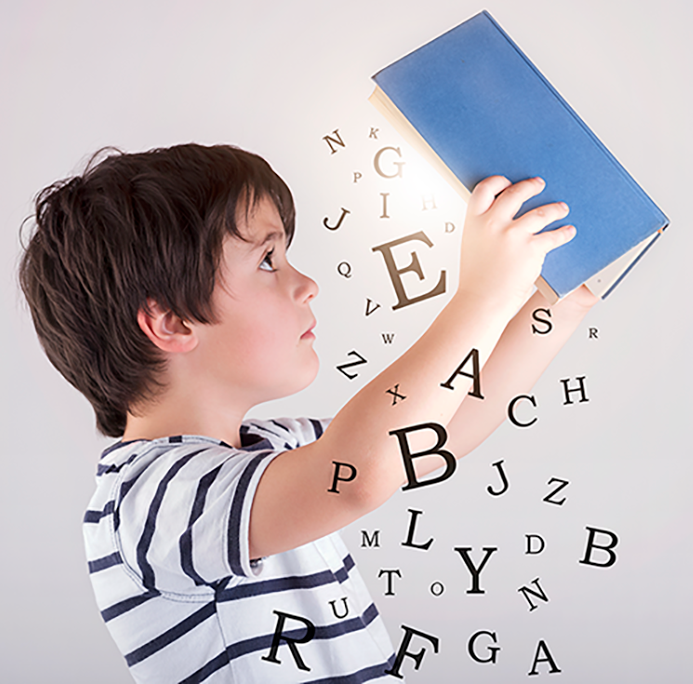Most dyslexics will exhibit about 10 of the following traits and behaviors. These characteristics can vary from day-to-day or minute-to-minute. The most consistent thing about dyslexics is their inconsistency.
From Test for Dyslexia – 37 Common Traits
© 1992 by Ronald D. Davis; Used with Permission
| Appears bright, highly intelligent, and articulate but unable to read, write, or spell at grade level. |
| Labelled lazy, dumb, careless, immature, "not trying hard enough," or "behavior problem." |
| Isn't "behind enough" or "bad enough" to be helped in the school setting. |
| High in IQ, yet may not test well academically; tests well orally, but not written. |
| Feels dumb; has poor self-esteem; hides or covers up weaknesses with ingenious compensatory strategies; easily frustrated and emotional about school reading or testing. |
| Talented in art, drama, music, sports, mechanics, story-telling, sales, business, designing, building, or engineering. |
| Seems to "Zone out" or daydream often; gets lost easily or loses track of time. |
| Difficulty sustaining attention; seems "hyper" or "daydreamer." |
| Learns best through hands-on experience, demonstrations, experimentation, observation, and visual aids. |
| Complains of dizziness, headaches or stomach aches while reading. |
| Confused by letters, numbers, words, sequences, or verbal explanations. |
| Reading or writing shows repetitions, additions, transpositions, omissions, substitutions, and reversals in letters, numbers and/or words. |
| Complains of feeling or seeing non-existent movement while reading, writing, or copying. |
| Seems to have difficulty with vision, yet eye exams don't reveal a problem. |
| Extremely keen sighted and observant, or lacks depth perception and peripheral vision. |
| Reads and rereads with little comprehension. |
| Spells phonetically and inconsistently. |
| Has extended hearing; hears things not said or apparent to others; easily distracted by sounds. |
| Difficulty putting thoughts into words; speaks in halting phrases; leaves sentences incomplete; stutters under stress; mispronounces long words, or transposes phrases, words, and syllables when speaking. |
| Trouble with writing or copying; pencil grip is unusual; handwriting varies or is illegible. |
| Clumsy, uncoordinated, poor at ball or team sports; difficulties with fine and/or gross motor skills and tasks; prone to motion-sickness. |
| Can be ambidextrous, and often confuses left/right, over/under. |
| Has difficulty telling time, managing time, learning sequenced information or tasks, or being on time. |
| Computing math shows dependence on finger counting and other tricks; knows answers, but can't do it on paper. |
| Can count, but has difficulty counting objects and dealing with money. |
| Can do arithmetic, but fails word problems; cannot grasp algebra or higher math. |
| Excellent long-term memory for experiences, locations, and faces. |
| Poor memory for sequences, facts and information that has not been experienced. |
| Thinks primarily with images and feeling, not sounds or words (little internal dialogue). |
| Extremely disorderly or compulsively orderly. |
| Can be class clown, trouble-maker, or too quiet. |
| Had unusually early or late developmental stages (talking, crawling, walking, tying shoes). |
| Prone to ear infections; sensitive to foods, additives, and chemical products. |
| Can be an extra deep or light sleeper; bedwetting beyond appropriate age. |
| Unusually high or low tolerance for pain. |
| Strong sense of justice; emotionally sensitive; strives for perfection. |
| Mistakes and symptoms increase dramatically with confusion, time pressure, emotional stress, or poor health. |

If you or your child display any of these common symptoms and you would like to confirm if it could be Dyslexia, you can take the Dyslexia Screening Assessment